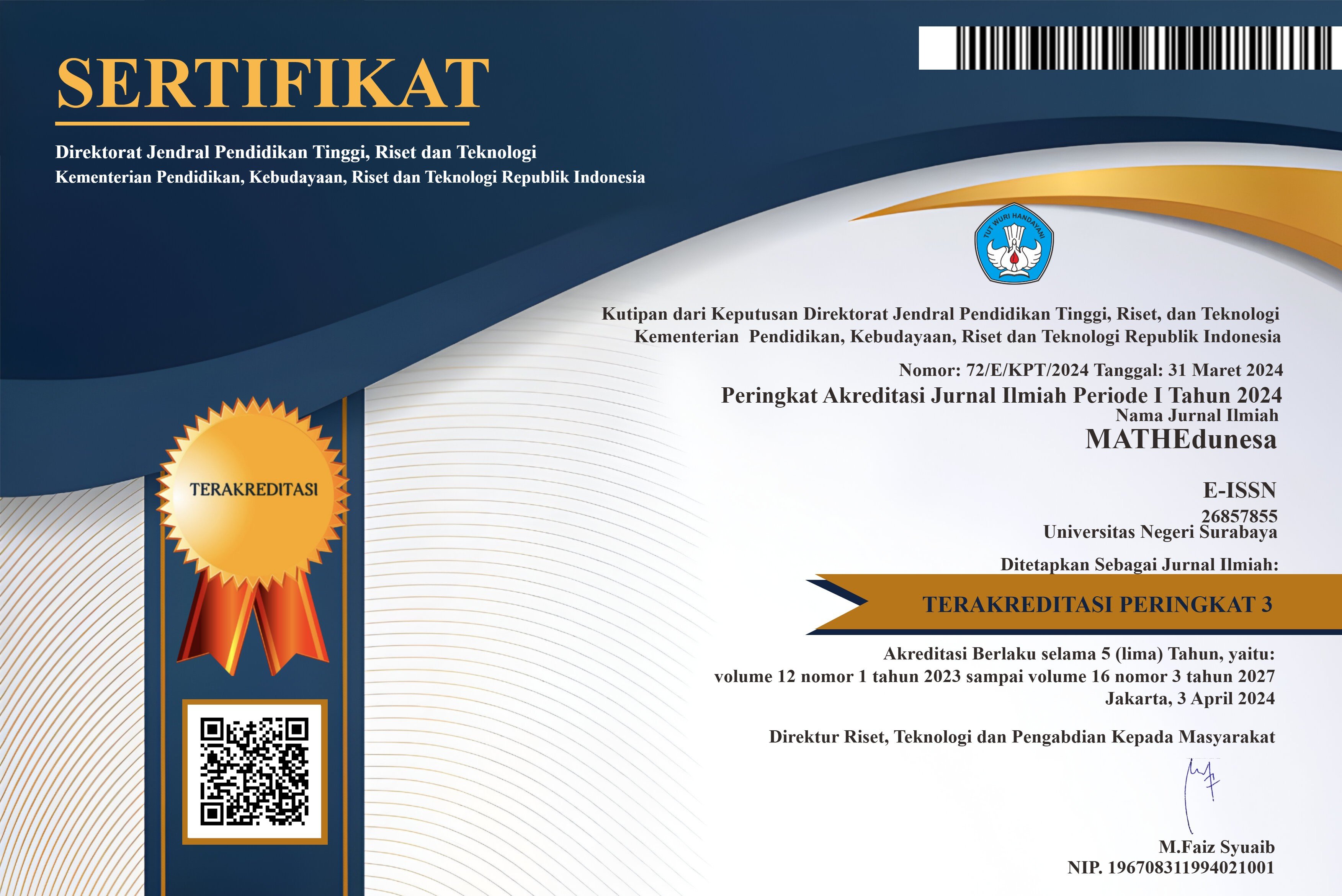Keterampilan Berpikir Kritis Siswa SMP dalam Memecahkan Masalah Matematika Kontekstual Ditinjau dari Kemampuan Matematika dan Perbedaan Jenis Kelamin
DOI:
https://doi.org/10.26740/mathedunesa.v12n3.p946-981Abstract
This research aims to describe the critical thinking skills of junior high school students in solving contextual math problems in terms of mathematical ability and gender differences. The type of research used is descriptive qualitative research. The subjects in this research were 1 male and 1 female student with high mathematics ability, 1 male and 1 female student with moderate mathematics ability, and 1 male and 1 female student with low mathematics ability.Data were collected using test and interview techniques. The instruments used were Mathematics Ability Test (TKM), Problem Solving Test (TPM), and interview guidelines.
Based on the results of the research, it can be concluded that the critical thinking skills of (1) male and female students with high mathematical ability met the indicators of interpretation, analysis, evolution (on argument proof, because in argument assessment only male students met the sub-indicator), inference, and explanation. Male students did not fulfill the indicators of self-regulation, while female students did. (2) Male and female students with moderate mathematics ability met the indicators of interpretation, inference, and explanation. Male students did not fulfill the indicators of analysis and self-regulation, while female students did. However, both did not fulfill the evaluation indicator. (3) Male and female students with low mathematics ability have many differences in critical thinking skills. Male students did not fulfill the indicators of interpretation, analysis, explanation, and evaluation. However, the self-regulation indicator is fulfilled. While female students fulfill the indicators of interpretation and analysis. Female students did not fulfill the indicators of evaluation, explanation, and self-regulation.
Downloads
Downloads
Published
Issue
Section
 Abstract views: 128
,
Abstract views: 128
, PDF Downloads: 114
PDF Downloads: 114




